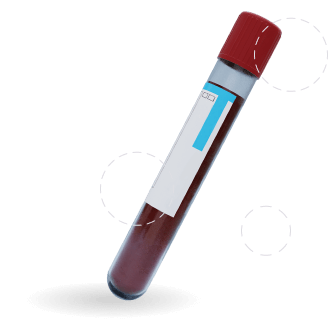
Medical Weight Loss Explained
A lot is said about medical weight loss but we are here to debunk the myths for you.
Blood Tests > Lactate Test

Find Out More


A lactic acid blood test, also known as a lactate test, measures the amount of lactic acid in your blood. Lactic acid is produced when the body breaks down carbohydrates for energy. This happens during intense physical activity or when oxygen supply is limited.
High levels of lactic acid can indicate an underlying medical condition that requires attention. Making a lactic acid blood test is a very important one to have.

This test is commonly used to help diagnose a variety of conditions that may cause a build-up of lactic acid, including:
While a temporary rise in lactic acid is often harmless, consistently high levels may point to more serious conditions, such as:


Lactate levels are typically measured in millimoles per litre (mmol/L). A normal lactate level is usually below 2 mmol/L, although this may vary slightly based on your clinic’s reference range.
Higher than normal levels may indicate a problem. Still, your doctor will interpret the results in the context of your symptoms and medical history to determine if further investigation is necessary.
If you experience symptoms like:

Use our online booking engine or book your test by giving us a call.
On the online booking engine select the “appointment type” you need.
You will be seen by one of our friendly phlebotomists or trained clinicians.

Depending on the specific instructions from one of our healthcare providers, you may need to fast for 8 to 12 hours before your lactic acid blood test. However, to be safe, just confirm if fasting is required when booking an appointment.
Do not forget to inform your doctor about any medications you are currently taking. This is important, as some drugs can affect your lactic acid levels.

Our blood-drawing specialist will clean the area around your vein. Afterwards, they will insert a needle to collect a blood sample.
The process typically takes a few minutes to complete. While there may be a slight pinch when the needle is inserted, the test itself is not painful. Any discomfort felt is typically brief.

You can resume most of your daily activities right after your test. You may experience slight bruising or tenderness at the needle site. However, it is short-lived.
Your results will typically be available within a few days. Your healthcare provider will inform you about the results and any necessary follow-up actions.
No
Hidden Charges
Transparent fees. The price you see is the price you pay.
No GP consultation
needed
No GP appointment requirement for blood tests
Established
since 1998
Experienced doctors & a professional team.
Strictly
confidential
Your medical records are kept private at all times.
We offer a wide range of private blood tests in London. Same-day appointments are available 5 days a week.
We work with experienced consultants & healthcare professionals who have received positive feedback from our patients, and with whom we have established long-term relationships.
Latest Episode
Tune in to our podcast to explore the world of healthcare and learn from distinguished special guests. We cover everything from preventative measures to cutting-edge treatments so that you can stay informed and up-to-date on health-related things.

A lot is said about medical weight loss but we are here to debunk the myths for you.

Tourist in London and need a GP? Get fast, private care for illnesses, injuries, or lost medication. No registration needed.

With NHS appointments harder to access, many people are turning to private GPs for faster, more convenient care.
Subscribe for latest updates & news


From same-day private GP and blood test appointments to visa medicals, a sexual and reproductive health clinic, and preventative health screenings, we are here to help.
Contact Us
Accepted Insurance Companies






Please note that Walk-in Clinic is a private medical centre & not an NHS service. Harley Walk-in Clinic Ltd company registration no. 07472804